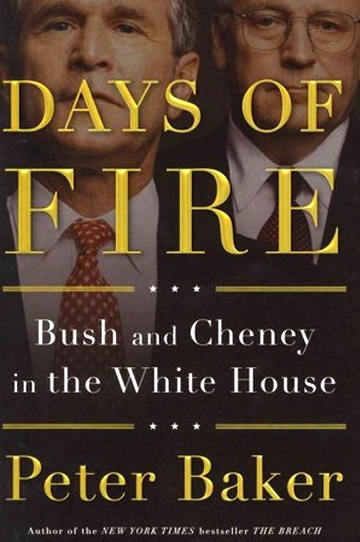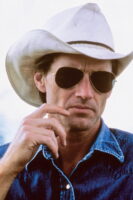George W. Bush frequently told his critics that he would let history judge his actions. Five years have passed since he left office, and the bad news for President Bush is that here comes history. Peter Baker, a reporter for the New York Times, has just published Days of Fire: Bush and Cheney in the White House, an encyclopedic and even-handed account of the Bush years. By historical standards, it is early days yet. But it’s not looking good for 43.
A few years’ perspective confirms that Bush’s presidency rises or falls with the decision to invade Iraq. All indications to date are that the war was a grievous mistake. Not only was it premised on a threat of weapons of mass destruction that did not exist; not only did it tear apart a country in a volatile region and end the lives of over 100,000 people – it shredded the United States’ image abroad by revealing an America that tortures captives and sends them to Guantanamo. As Baker shows, the war also eclipsed the campaign in Afghanistan – the country that had, after all, harbored the terrorists who attacked the United States on 9/11 – and almost completely disrupted Bush’s domestic agenda.
Although Days of Fire is very much a journalistic account, Baker offers clear-eyed perspective on the fateful decisions of a decade ago. In the smoke-filled days of rubble and bullhorns, President Bush became intoxicated by the possibilities of the moment. “His successes at toppling the Taliban fed the desire to hit another target,” writes Baker. “Bush did not want to be like Clinton flailing ineffectually at shadows. Taking on tyrants, rooting out terrorists, confronting rogue states with weapons of mass destruction, even planting a seed for democracy were missions worthy of a great president.”
In researching the book, Baker interviewed hundreds of insiders, including Vice President Dick Cheney (although not Bush himself). The kaleidoscopic, behind-the-scenes narrative reveals that true dysfunction reigned in the White House during the first term, and that the president was too conflict-averse to quell it. The ferocious and incorrigible Donald Rumsfeld, squinting lethally at the incompetence all around him, clashed with Colin Powell and Condoleezza Rice, dressing them down and guarding his turf as he nevertheless avoided personal responsibility for controversial decisions.
And then there was the lord of darkness himself, Vice President Cheney. Silent, terrifying, and very conservative, he did not secretly control the White House as many suspected, but was nevertheless extremely powerful. (He more or less selected Bush’s first cabinet, for instance.) “Cheney’s role was like watching iron filings moving across a tabletop,” said one aide. “You know there is a magnet down there. You know the magnet is moving. You never see the magnet.”
At least, that was the case in the first term. Baker shows how Cheney marginalized himself over the second half of Bush’ presidency with aggressively conservative positions, contempt for public opinion, and disdain for any assignment but the national security portfolio. The relationship between Bush and Cheney is a story of two mighty tectonic plates, once inseparable, slowly drifting apart. This process of disillusionment, which culminated in Bush’s refusal to pardon Cheney aide Scooter Libby, forms the heart of the book.
The president himself emerges from Days of War less cocksure and more likeable than the smirking, frat-boy commander in chief who famously said of terrorists, “Bring ‘em on.” Baker reveals that Bush felt the terrible weight of wartime decisions and suffered red-eyed anguish when meeting with the families of fallen soldiers. He determined not to show this side of himself publicly, but that was a mistake. All his political opponents wanted to see was a little humility. “I’ll bet I’ve shed more tears than you can count, as president,” he said once. “I’ll shed some more tomorrow.”
Yet Bush also comes across as a man altogether too preoccupied with his image as the guy who always does the tough thing. This is not exactly the same type of machismo that had him strutting around in cowboy boots and coining nicknames, but it carried greater consequences. When Bush’s aides implored him to fire Rumsfeld after the Abu Ghraib scandal, Bush grew defensive. He determined to endure the criticism and remain loyal to his man – not realizing that in fact the harder choice, and the necessary one for the country, was to fire the defense secretary. Had he similarly resisted Cheney and Rumsfeld’s relentless pressure to attack Iraq in 2002, the arc of history might have looked quite different.







